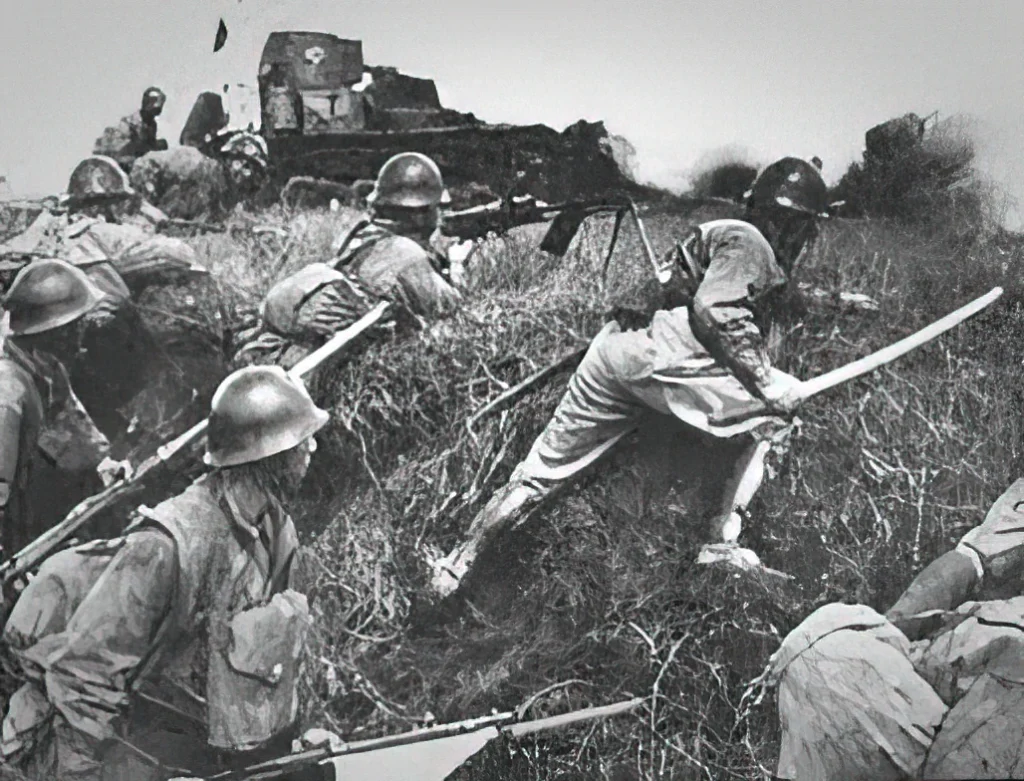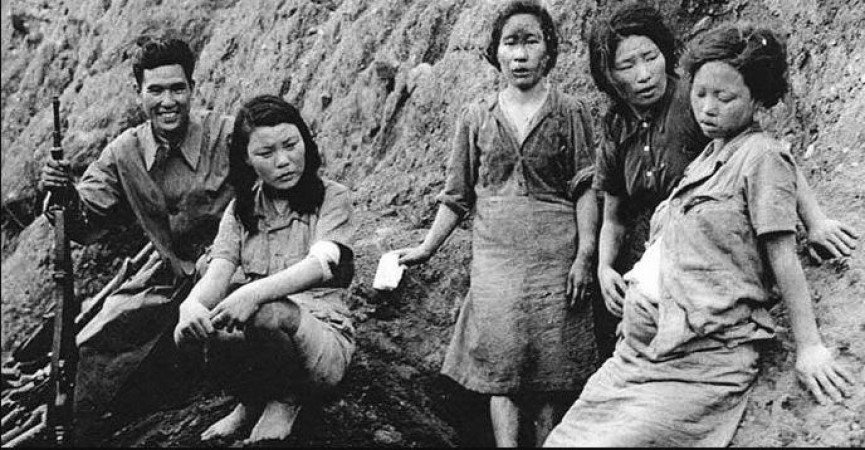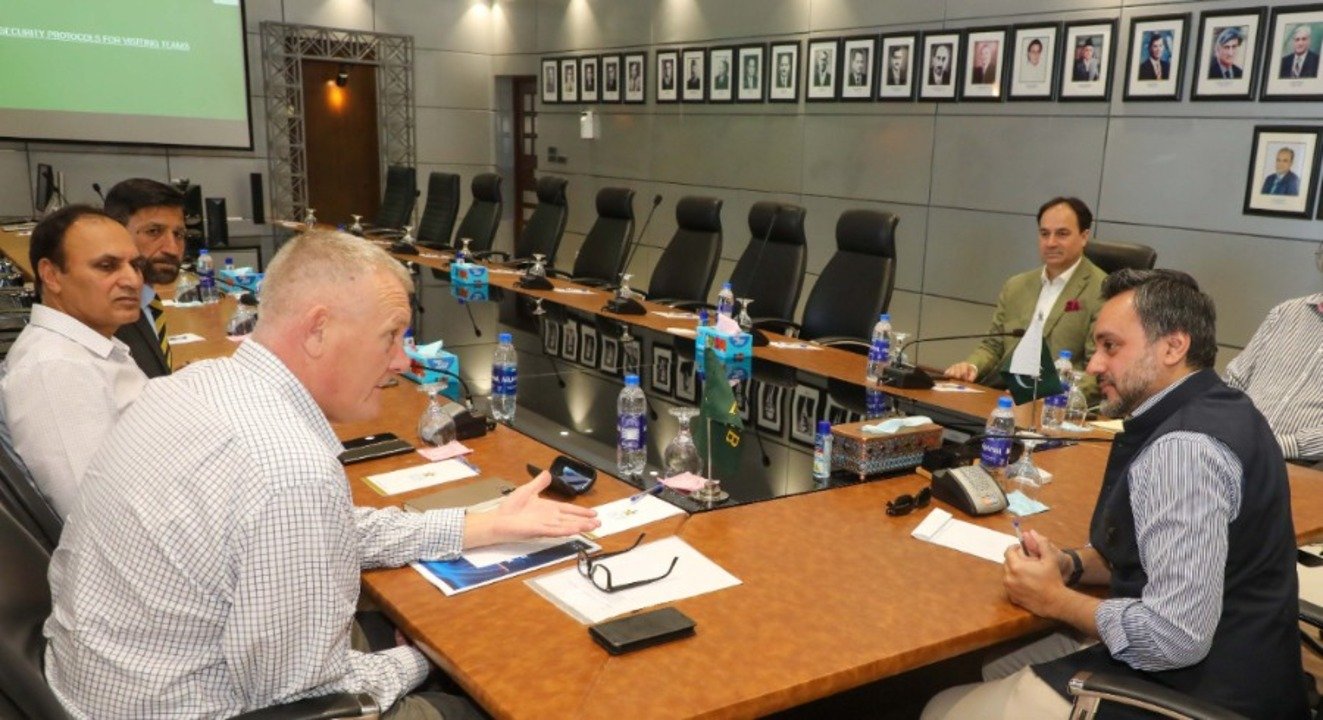Nanjing Massacre: lakhs of Chinese killed and women raped
The Nanjing or Nanking Massacre, also known as the Rape of Nanjing, was a horrific event during which the Japanese army killed lakhs of Chinese people and raped women.
It was the worst massacre that came as a result of the Second Sino-Japanese War, in which the Japanese army brutally massacred and raped hundreds of thousands of Chinese civilians in Chinse City, Nanjing in 1937.

Historical Background
The Japanese invasion of Nanjing was part of their broader military campaign during the Second Sino-Japanese War. Nanjing held significant strategic and symbolic importance, which made it the main target for Japanese invasion ambitions.
Strategically, invading Nanjing provided the Japanese control over a major transportation hub, access to the Yangtze River, and further territorial conquests in China. Its strategic, economic, and ideological factors urged Japan to conquer Nanjing.
Moreover, Nanjing served as the political and cultural heart of China. Hence, its invasion enabled the Japanese to establish dominance over the region to fulfill their kingdom’s rule.

Preparation for the Nanjing Invasion
Japanese army focused its attention on Nanjing in the early years of World War II after winning the Second Sino-Japanese War in Shanghai with great bloodshed in Aug 1937. Nanjing was the capital city of China at that time.
Nationalist commander of China, Chiang Kai-Shek, ordered the withdrawal of almost all official Chinese troops from Nanjing. It left the capital city guarded by inexperienced volunteer troops. He gave this order due to fear of defeat as the Imperial Japan army was much more powerful than the Chinese.
However, Chiang also banned the official evacuation of the city’s residents and ordered them to hold it at all costs. Many residents disobeyed his commands and ran away, while a large population left in Nanjing to face the brutal enemy.

The International Committee for the Nanjing Safety Zone was a tiny group of Western missionaries and businessmen who tried to create a refuge for the civilian population of Nanjing.
They created a safety zone in November 1937- that contained over a dozen tiny refugee camps (roughly the size of Central Park in New York).
The International Committee took control of Nanjing when the Chinese government abandoned it on Dec 1, 1937. They instructed the remaining citizens of Nanjing to enter the safety zone to protect themselves.
Nanjing Invasion and Destruction
After successfully invading Shanghai, the Imperial Japanese Army approached Nanjing on Dec 13, 1937. The crimes carried out by the Japanese army were not only limited to the six weeks of killing following the surrender of Nanjing, even though this is how people remember the massacre.
As the Japanese troops moved from Shanghai to Nanjing, they committed unimaginable crimes, including murder, brutal torture, rape, and burning. At first, Japan’s Central China Front Army’s (Army 10) troops under the command of General Iwane Matsui entered the city.
Nanjing invasion by the Japanese army became a “nightmarish zone of death and destruction.” Japanese aircraft routinely targeted unarmed farmers and refugees just for fun. For example, they set fire to Nanqiantou village, trapping a large number of its residents inside the flaming homes.

Some Worst Examples of Brutality by the Japanese Army
Japanese soldiers repeatedly raped two women, and one of them was pregnant. Then, they proceeded to gouge out the fetus and cut open the belly of a pregnant woman.
They assaulted Chinese villagers by throwing them into the creek while a two-year-old boy whom they snatched from his mother’s arms and threw her into burning flames. Massive Nanjing citizens frequently committed suicide, fearing the extent of brutality by Japanese troops.

I witnessed two girls purposefully drown themselves close to Pinghu to save themselves from being raped and burnt.
Japanese First Lieutenant Nishizawa Benkichi
A Japanese journalist, Tatsuzō Ishikawa, also shared his thoughts about the brutality and horror crimes of Japanese troops. He was present at the time of the Nanjing massacre. He stated:
The 10 Army is marching quickly on Nanjing because the officers and men have given their subconscious approval to loot and rape as they wish.
Award winning journalist, Tatsuzō Ishikawa from his novel Ikiteiru Heitaiwho
Do you know it took decades for Nanjing to recover from the massive destruction caused by the Japanese army? It was one of the wealthiest and most industrialized cities in China before the arrival of the Japanese in Nanjing.
Nanjing Massacre
The exact number of people who died in the Nanjing massacre is unknown, but rough estimates put the number between 200,000 and 300,000.
General Iwane Matsui was growing more and more shocked on Dec 18, 1937, as he started to realize the entire scope of rape, torture, massacre, and looting in Nanjing. He allegedly said to one of his non-military assistants:
It appears to him now that they have indirectly caused Nanjing to suffer greatly. He can’t help but feel depressed when he considers the thoughts and feelings of many of his Chinese friends who have escaped Nanjing, as well as the future of the two nations.
General Iwane Matsui

He also reportedly said:
I am incredibly lonely and find it difficult to celebrate this win. Although he is sad about the disasters that the people are going through, the army must go on until China changes its way. Now, that winter has arrived, there is time to think. I sincerely extend my condolences to a million innocent souls.
General Iwane Matsui
Click here to read the updates on Vlad the Impaler: Dracula Ruler who killed 80,000 people
Rape of Nanjing
As the Japanese soldiers went door to door looking for girls, they systematically raped massive women capturing them. A Japanese soldier stated:
Women were specifically affected. Regardless of their age, they were all destined to become victims of sexual assault. We transferred coal trucks to the streets and villages to track down massive Chinese. After that, a group of fifteen to twenty troops abused and raped each woman. We would rape and then kill them.
Takokoro Kozo, Japanese troop
The Chinese women were frequently murdered right away after being sexually assaulted, usually by brutal mutilation. It included sticking long sticks of bamboo, bayonets, or other things through vaginas. According to rough estimates, at least 20,000 women (from teenage to old age) were raped and mutilated by Japanese soldiers.

Aftermath and Legacy
The International Military Tribunal for the Far East held a trial of General Iwane Matsui. It found him and his subordinate Tani Hisao guilty of war crimes shortly after the war ended. They both faced a death sentence.
Sino-Japanese relations are still affected by anger over what happened in Nanjing to this day. The massacre has been a controversial matter.
Some Japanese historians called reported crimes in Nanjing a propaganda tool, while some deny a massacre happened in the city. However, some argue that the death toll has been exaggerated due to the Nanjing War.
The Nanjing Massacre Memorial Hall honors the victims of the Nanjing, which is situated next to a mass grave of ten thousand corpses. The historical records of the Nanjing Massacre Memorial have also been added to the Memory of the World Register by UNESCO.

Conclusion
The Nanjing Massacre serves as a traumatic reminder of the horrors of war and the unlimited capacity of human evil nature. It is the darkest chapter in history that offers us to learn from the past and work toward a future of peace, justice, and reconciliation.
We uphold the values of compassion, dignity, and respect for all humanity by remembering the victims and honoring their memory.
Share this content:




Post Comment